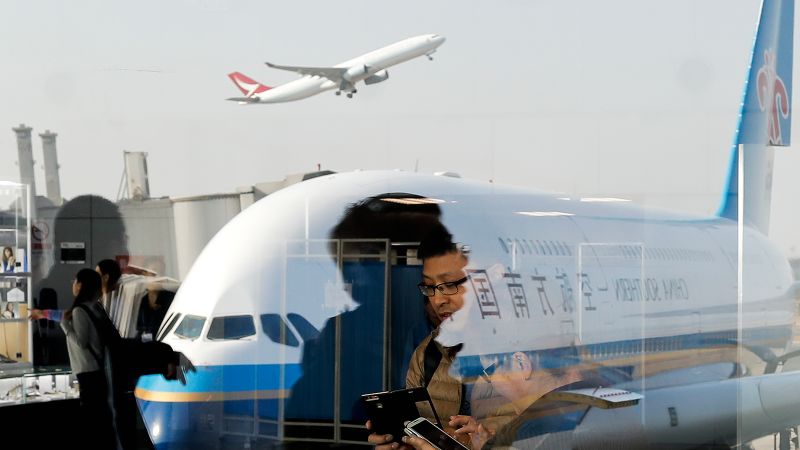
China to restrict exports of some aviation and space components
CNN
China will control exports of some aviation and space components from July 1, its Commerce Ministry announced on Thursday, citing a need to protect the country’s national security and interests.
Beijing (Reuters) — China will control exports of some aviation and space components from July 1, its Commerce Ministry announced on Thursday, citing a need to protect the country’s national security and interests. Those wishing to export items including aerospace structural components as well as equipment and software used in engine manufacturing, among other things, will need to apply for an export license, a statement jointly signed by China’s Customs Administration and Central Military Commission said. “In order to safeguard national security and interests, and fulfill international obligations such as non-proliferation, with the approval of the State Council and Central Military Commission, it has been decided to implement export controls on the following items,” the statement read. The list also included gas turbine engines, moulds for manufacturing spacesuit parts, as well as the equipment and software used to make them, and advanced polymers used in bulletproof clothing. Exporters will need to apply to the Ministry of Commerce for an export license, the statement said, which will decide whether the item in question could have “dual-use” military application. Beijing brought in its Export Control Law in late 2020, amid an escalating trade war kicked off by Trump-era tariffs on $300 billion of Chinese goods in 2018. Analysts said at the time of its passing that it was predominantly a tidying up exercise to consolidate numerous bits of legislation into one single law.

A typical 401(k) plan only offers stock and bond funds that invest in publicly traded companies. But private companies — traditionally the domain of institutional and high-net-worth investors — have become a significant part of the overall investing market. Do they belong as an option in workplace retirement plans, given that they are often more expensive and less transparent than publicly traded securities?

President Donald Trump’s attacks on Federal Reserve Chair Jerome Powell are so commonplace at this point that they barely register in financial markets these days. The rapidly intensifying multi-pronged efforts by Trump’s advisers to amplify and expand on Trump’s attacks are a good reason to rethink that indifference.





















 Run 3 Space | Play Space Running Game
Run 3 Space | Play Space Running Game Traffic Jam 3D | Online Racing Game
Traffic Jam 3D | Online Racing Game Duck Hunt | Play Old Classic Game
Duck Hunt | Play Old Classic Game









